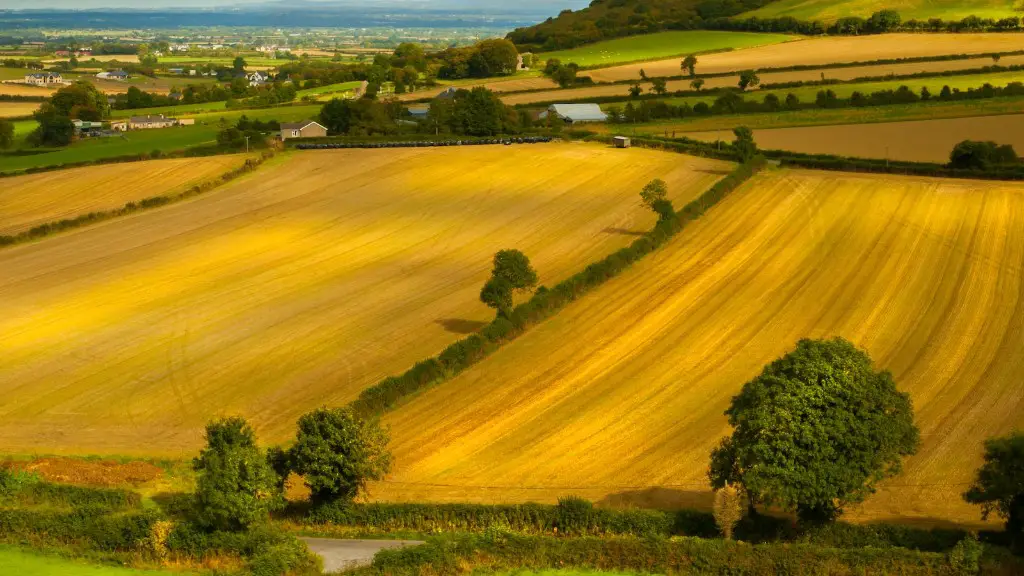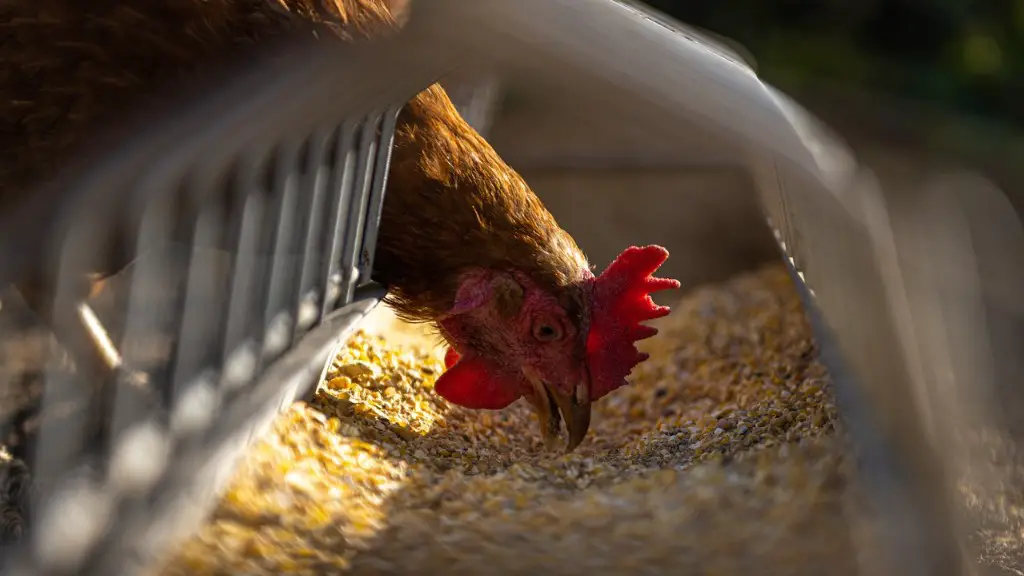Agriculture plays a substantial role in the U.S. economy. It provides economic benefits to businesses, communities, and individuals across the country. In 2020, agricultural commodities and related inputs contributed $609.8 billion to the U.S. gross domestic product (GDP). Agribusinesses employed about 22.4 million individuals in 2020, or about 11 percent of the workforce. Agriculture is also one of the nation’s topexport categories, generating nearly $123 billion in exports in 2019. Additionally, it is an important source of tax revenue, with taxes on agricultural production accounting for more than $56 billion in 2017. Agriculture is essential to national security. It maintains a secure, safe and competitive food supply, supplying the American public with a reliable and affordable food supply.
Agriculture’s Economic Benefits
Agriculture provides economic benefits to businesses, communities, and individuals across the U.S. by generating income, encouraging investment, providing employment opportunities, and fostering economic growth. Those who own and operate farms benefit from increased economic stability, often generating significant income from the sale of their agricultural products. This income is often invested in their local communities, providing a source of economic activity. Additionally, the agricultural industry often provides jobs for a wide variety of individuals. From farm workers to food processors, the agribusiness industry continues to provide employment opportunities for a large number of Americans. Finally, agriculture’s economic contributions often drive economic growth in rural areas, where agriculture is often the largest source of economic activity.
Agricultural Businesses and Job Creation
Agricultural businesses are some of the most important job creators in the United States. According to the USDA, agricultural businesses employed more than 22.4 million individuals in 2020, or about 11 percent of the total U.S. workforce. The majority of employees work on farms, while others work in agribusinesses such as food processors and grocery stores. These businesses also often provide essential goods and services to rural communities, providing vital economic stability and promoting regional economic growth.
Agriculture’s contributions to National Security
Agriculture is essential for national security. It maintains a secure, safe and competitive food supply, supplying the American public with a reliable and affordable food source. Additionally, agricultural exports contribute to the U.S. balance of payments, reducing the U.S. trade deficit. The agricultural sector is also vital for energy security, providing renewable, domestic sources of energy. Finally, the agricultural industry is essential for environmental security, providing vital ecosystems services such as biodiversity, pollination, and water catchment.
Agricultural products and exports
Agricultural products play an important role in the economy. Agricultural commodities and related inputs contribute $609.8 billion to the U.S. Gross Domestic Product (GDP). Additionally, agricultural exports are an important category in trade, generating nearly $123 billion in exports in 2019. This export income helps to drive economic growth, improve trade balances and create jobs. Furthermore, agricultural products are often essential for global food security and can provide an important source of income in developing countries.
The Role of Government in Agriculture
The role of government in agriculture is often seen as essential for maintaining a healthy and vibrant agricultural sector. Government policies such as public research, credit programs, and conservation incentives can help to create a sustainable and efficient agricultural sector. Additionally, government subsidies, trade policies, and disaster assistance help to protect farmers from market volatility and provide financial stability. Finally, government agricultural research is often essential for developing and implementing innovative advances in agricultural technology, ensuring food safety and nutrition, and promoting the growth of environmentally sustainable farming practices.
Tax Revenue Generated by Agriculture
Agriculture is an important source of tax revenue in the United States. In 2017, taxes on agricultural production accounted for more than $56 billion in revenue. This revenue is often used to support public services such as healthcare, education, infrastructure, and environmental protection. Additionally, taxation can also fund agricultural subsidies and incentives, helping to promote the growth and development of the agricultural sector. Finally, taxation can also act as a deterrent, providing incentives for farmers to practice sustainable and responsible agricultural practices.
The Impact of Agriculture on the Environment
Agriculture can have a significant impact on the environment. Unsustainable farming practices can lead to soil degradation, water pollution, and loss of biodiversity. Additionally, the use of agricultural chemicals and fertilizers can lead to air pollution and water contamination. Furthermore, monoculture farming systems can reduce genetic diversity and create an increased risk of pest infestations and disease transmission. Therefore, it is essential to manage agricultural practices responsibly, mitigating the potential environmental impacts.
Agriculture’s Role in the Global Economy
Agriculture plays an important role in the global economy. It is a major source of income for many developing countries, providing income for small-scale farmers, jobs for rural workers, and a source of exports. Additionally, agricultural commodities are often essential for feeding global populations, supplying an affordable and secure source of nutrition. Furthermore, agricultural products often provide essential nutrition for vulnerable populations, helping to reduce malnutrition and its associated health complications. Finally, agricultural innovations can help to create more efficient, profitable and sustainable farming practices, benefiting both farmers and consumers.
The Role of Technology in Agriculture
Technology has revolutionized the agricultural sector, enabling more efficient and profitable farming practices. Advances in agricultural research and biotechnology have led to the development of new types of seeds, fertilizers, and pesticides, creating higher yields with fewer inputs. Additionally, advances in digital technology have enabled farmers to make better use of their resources. This has greatly increased the efficiency of agricultural production, creating higher yields with minimal input. Finally, advances in communication and information technology have increased transparency in agricultural markets, providing farmers with greater access to real-time data and market trends.
The Future of Agriculture
The future of agriculture is uncertain, but it is clear that the industry will need to continue to adapt to changing conditions. Climate change, demographic shifts, and technological advancements will all play a role in the future of agriculture. As the world population continues to grow, increasing demand for food and other agricultural products will necessitate more efficient and sustainable farming practices. Furthermore, technologies such as artificial intelligence and the Internet of Things are likely to have a major impact on the sector, enabling farmers to make better use of their resources and reduce their environmental impacts. As the agricultural sector continues to adapt to a changing environment, it is essential that it remains an important contributor to the global economy.


